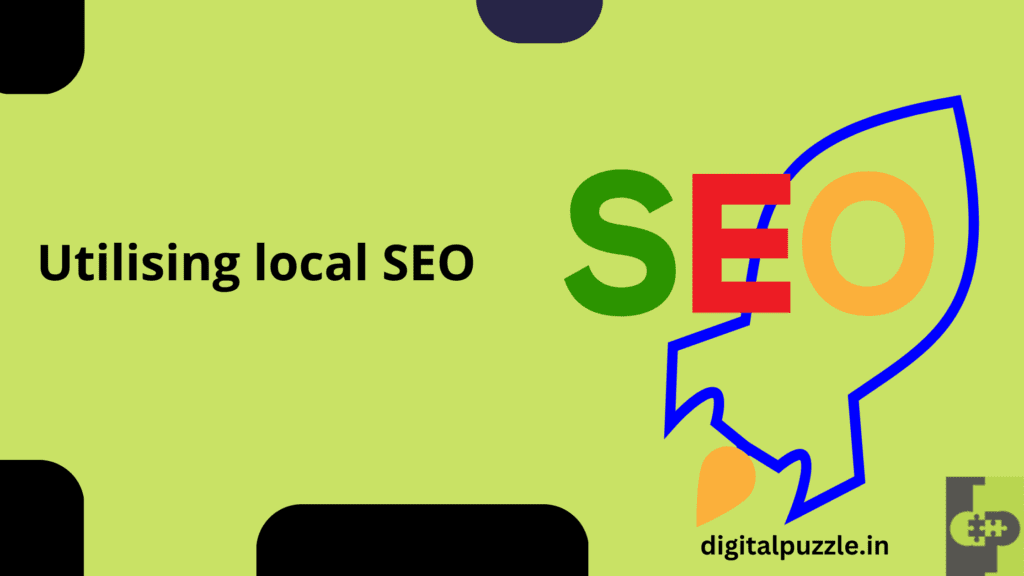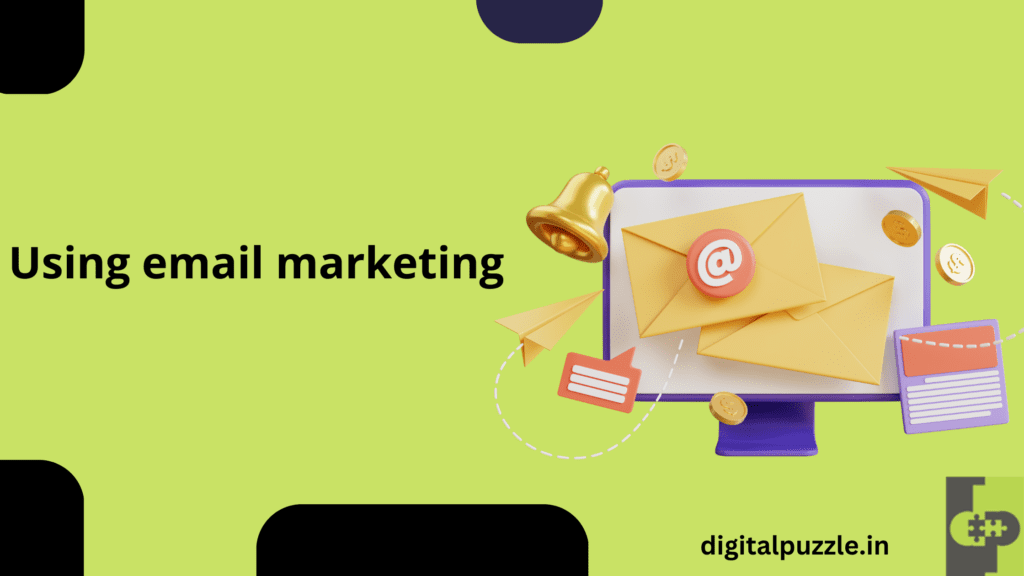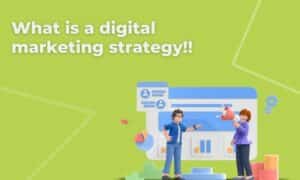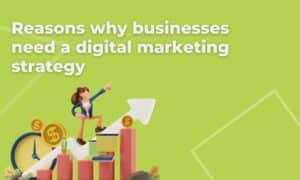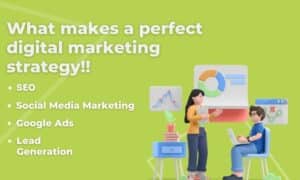blog
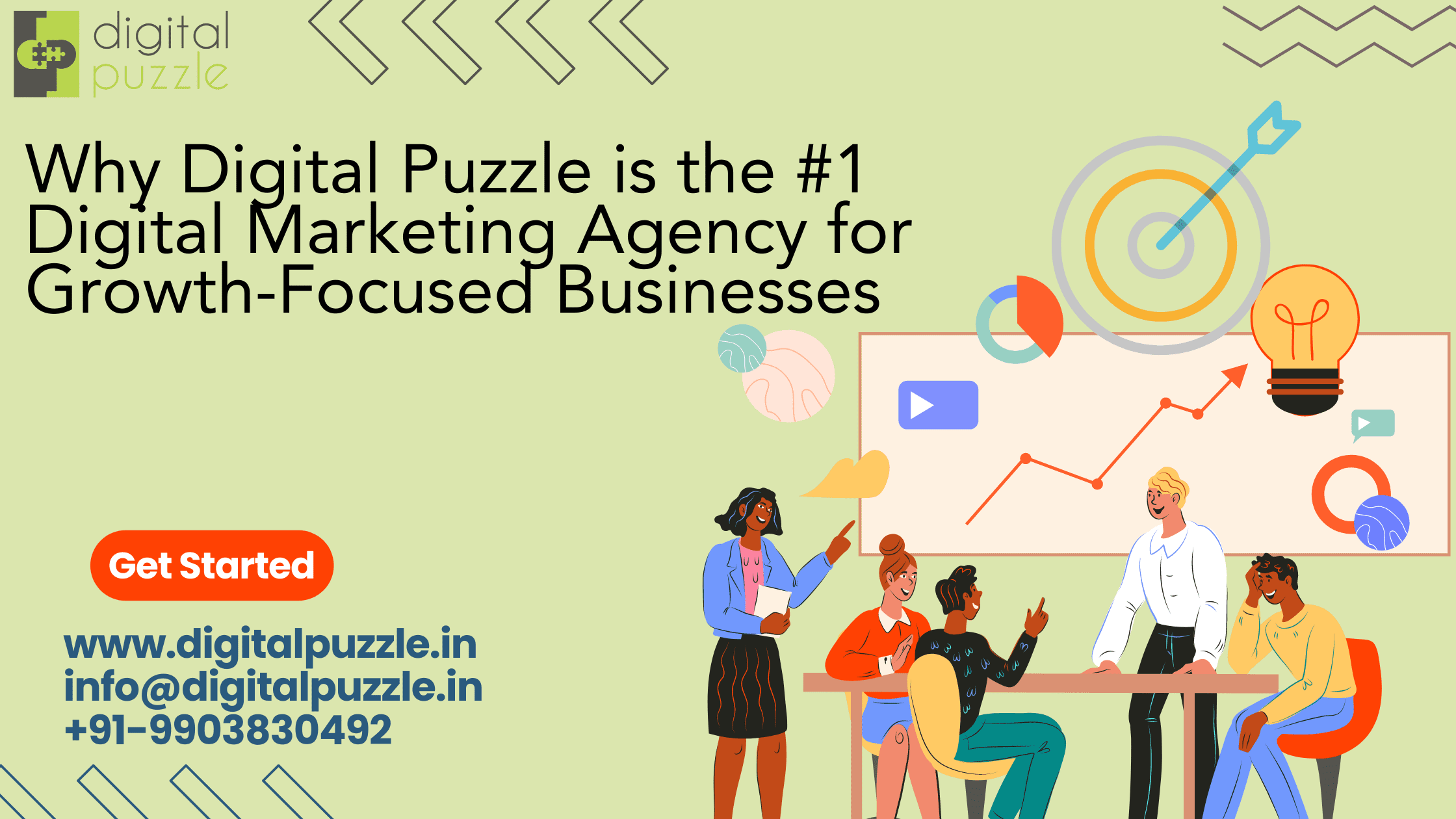
Why Digital Puzzle is the #1 Digital Marketing Agency for Growth-Focused Businesses
But with so many options for digital marketing, how do you know which company is the best to propel your business forward? Look no further than Digital Puzzle – the premier digital marketing agency that delivers unparalleled results for its clients.
So what makes Digital Puzzle stand out from the rest? Here are the top reasons this agency is simply the best in the business:
Cutting-Edge Strategies
Digital Puzzle stays ahead of the curve when it comes to digital marketing trends. Their team is obsessed with constant research and education to ensure their strategies utilize the latest and greatest tactics. While other agencies rely on outdated methods, Digital Puzzle leverages innovative approaches like hyper-targeted paid ads, influencer partnerships, live video, and more. This creates exceptionally effective campaigns.
Industry-Leading Experts
Digital Puzzle employs only the top experts across every digital marketing specialty. Their team has elite-level experience creating and managing successful strategies for clients in diverse industries. And they are also thought leaders who speak at conferences and contribute to major publications. This depth of talent gives Digital Puzzle unmatched skills to meet the unique needs of any brand.
Proven Track Record
The work speaks for itself – Digital Puzzle has an extensive portfolio of successful brand transformations. From startups to Fortune 500 companies, they have elevated countless businesses with their digital marketing expertise. Their past clients achieve remarkable metrics like 800% returns on ad spend, 500% increases in site traffic, and three times faster lead generation. Digital Puzzle gets real, tangible results.
Comprehensive Services
Unlike other agencies, Digital Puzzle is a one-stop shop providing every digital marketing service imaginable. Their capabilities include SEO, SEM, social media marketing, email marketing, web design, influencer marketing, video marketing, and more. With all these services under one roof, they can create fully integrated strategies that help clients achieve their goals faster.
Data-Driven Approach
Analytics and metrics are the backbone of Digital Puzzle’s work. They monitor and optimize based on key KPIs using cutting-edge software tools. The team gathers quantitative data and customer insights to continually refine campaigns until they produce the desired ROI. Their meticulous optimization and data analysis means no effort or dollars are wasted.
Customer-Focused Service
In the world of digital marketing, no two brands are alike. That’s why Digital Puzzle tailors everything they do to match each client’s business goals, target audience, budget, timeline, and more. Their strategies are highly customized for optimal effectiveness. Plus their level of service goes beyond expectations to deliver white-glove client care.
Best-in-Class Results
At the end of the day, Digital Puzzle offers what every business wants – real, tangible outcomes that boost brand awareness, elevate authority, increase conversion rates, and drive revenue growth. They understand how to connect digital efforts to profit drivers. The team has a sixth sense for unlocking transformational results that both clients and their audiences love.
Looking for a digital marketing genius? Partner with the pros who have mastered it – Digital Puzzle. Their unique blend of forward-thinking strategies, industry expertise, proven experience, comprehensive capabilities, analytics rigor, and custom care makes them outright the best digital marketing agency available.
Read More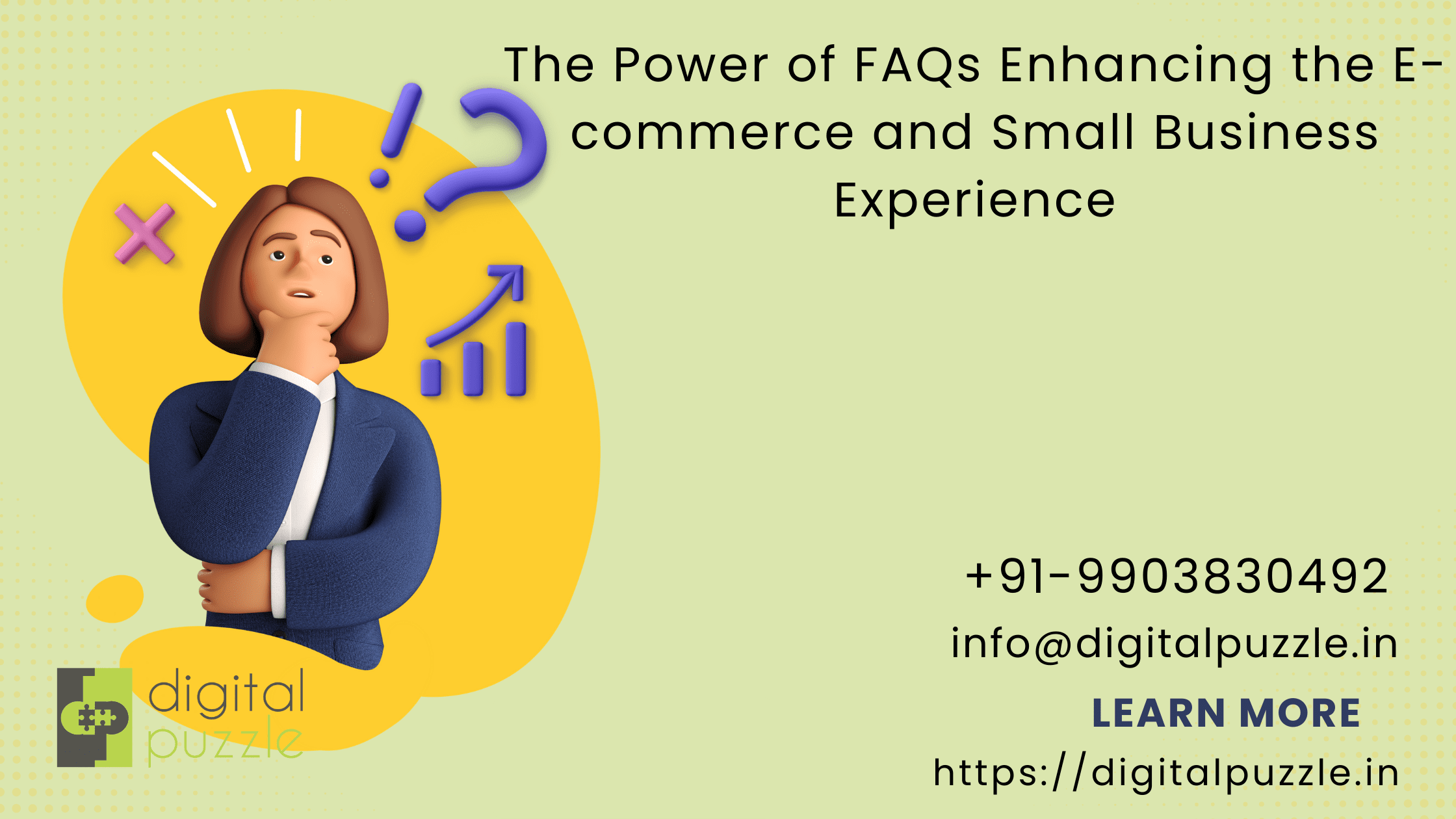
The Power of FAQs Enhancing the E-commerce and Small Business Experience
Introduction:
In the competitive landscape of e-commerce and small businesses, standing out and gaining customer trust is paramount. One effective way to achieve this is by implementing a well-crafted Frequently Asked Questions (FAQ) section on your website. In this blog post, we will explore the importance of FAQs for e-commerce and small businesses, and how they can drive customer satisfaction, boost conversions, and streamline operations.
Addressing Customer Queries and Concerns: FAQs serve as a valuable resource for customers to find answers to common questions. By proactively addressing their queries, concerns, and hesitations, you create a sense of transparency and trust. FAQs reduce the need for customers to contact support, saving time and resources for both parties.
Building Customer Confidence and Trust: When customers see that their questions are anticipated and answered upfront, it builds confidence in your brand. It demonstrates that you value their experience and are committed to providing excellent customer service. This trust can lead to higher customer satisfaction, repeat purchases, and positive word-of-mouth recommendations.
Simplifying the Purchase Decision Process: FAQs help customers make informed purchasing decisions. By providing detailed information about your products or services, shipping and return policies, payment options, and any other pertinent information, you remove barriers and make the decision-making process easier. This can lead to increased conversions and reduced cart abandonment rates.
Showcasing Expertise and Differentiation: FAQs offer an opportunity to showcase your industry knowledge and expertise. By providing in-depth answers to complex questions, you position yourself as a trusted authority in your field. Additionally, FAQs can highlight unique selling points, features, and benefits of your products or services, setting you apart from competitors.
Improving Search Engine Visibility: Well-optimized FAQs can improve your website’s search engine visibility. By incorporating relevant keywords and phrases in your FAQ content, you increase the chances of appearing in search engine results for relevant queries. This can drive organic traffic to your website and expose your brand to a wider audience.
Streamlining Customer Support: FAQs act as a self-help resource, reducing the burden on your customer support team. By addressing common queries upfront, you free up resources to focus on more complex or unique customer inquiries. This leads to more efficient operations, faster response times, and improved customer satisfaction.
Enhancing User Experience: FAQs contribute to a positive user experience by providing quick and easy access to information. Well-organized and easily navigable FAQ sections can help users find the answers they need efficiently. A seamless user experience translates into satisfied customers who are more likely to engage with your business.
Encouraging Social Sharing and Engagement: Compelling and informative FAQs can be shared on social media platforms or through word-of-mouth. When customers find valuable answers to their questions, they are more likely to share them with others who may have similar inquiries. This can drive organic reach, increase brand visibility, and foster engagement.
Conclusion:
The value of FAQs cannot be overstated for e-commerce and small businesses. By proactively addressing customer queries, building trust, simplifying the purchase process, showcasing expertise, improving search engine visibility, streamlining customer support, enhancing user experience, and encouraging social sharing, FAQs contribute to the overall success of your business. Invest time and effort in creating a comprehensive and user-friendly FAQ section, and watch as it becomes a powerful tool for customer satisfaction, conversion optimization, and business growth.
Here are some example FAQs related to the importance of FAQs for e-commerce and small businesses:
- What are FAQs and why are they important for my e-commerce business?
- How can FAQs help build trust and confidence among customers?
- What types of questions should I include in my FAQ section?
- How can FAQs simplify the purchase decision process for customers?
- Can FAQs help differentiate my business from competitors?
- How do FAQs contribute to improving search engine visibility?
- Are there any best practices for organizing and formatting FAQs on my website?
- How can FAQs streamline customer support and reduce the workload for my team?
- Will having FAQs enhance the user experience on my website?
- Can FAQs be used to encourage social sharing and engagement with customers?
Feel free to customize these example FAQs according to your specific business and target audience.
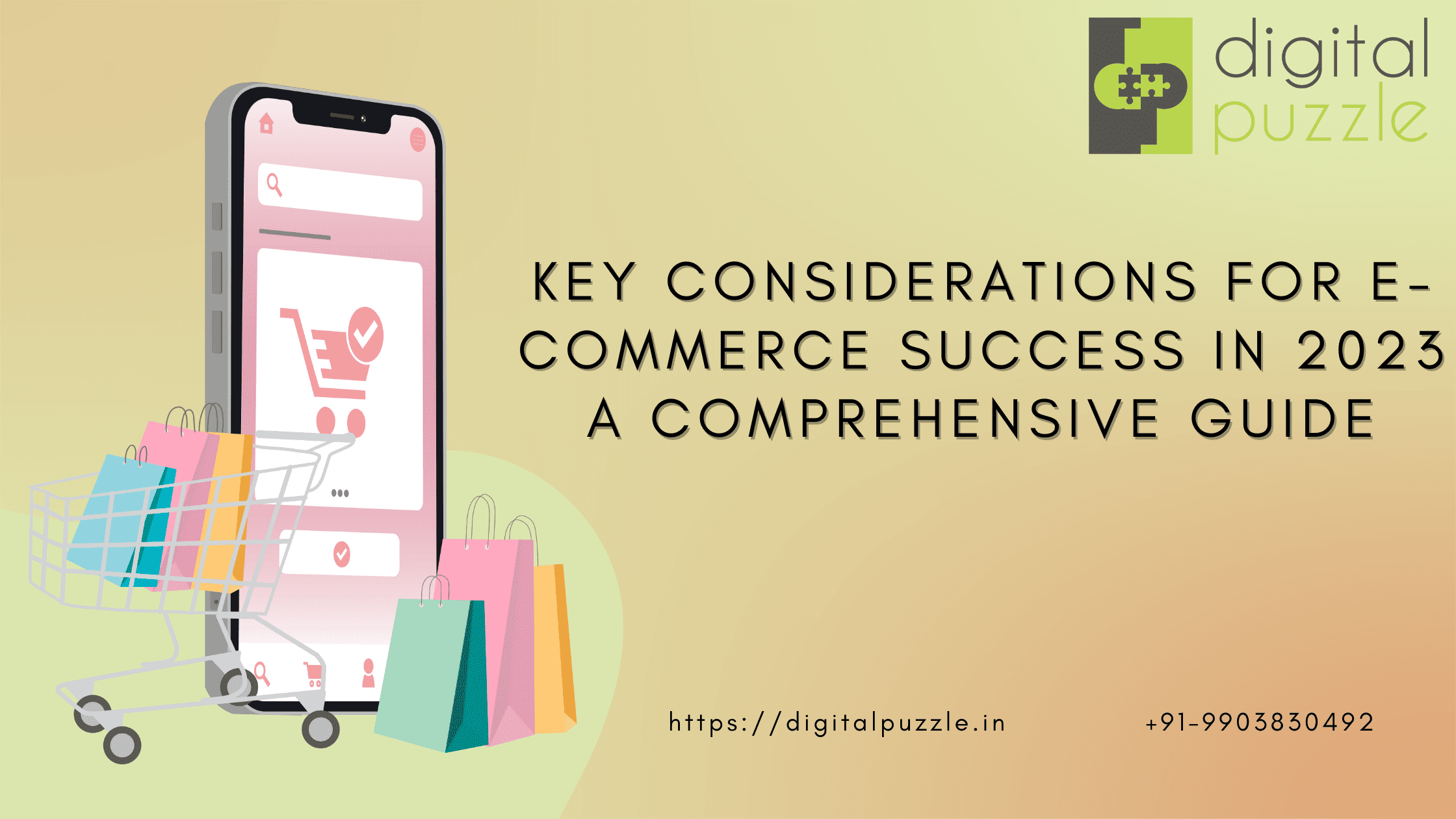
Key Considerations for E-Commerce Success in 2023 A Comprehensive Guide
Introduction:
The world of e-commerce continues to evolve rapidly, and staying ahead of the curve is crucial for success. As we step into 2023, e-commerce businesses must adapt to emerging trends, changing consumer behaviors, and evolving technologies to maintain a competitive edge. In this blog post, we will explore the key considerations and strategies that e-commerce businesses should focus on in 2023 to thrive in the digital landscape.
Mobile-First Approach:
With the increasing use of smartphones for online shopping, adopting a mobile-first approach is paramount. Ensure that your e-commerce website is fully responsive, offers seamless navigation, and provides an optimized mobile shopping experience. Mobile optimization is not only critical for user experience but also for search engine rankings.
Personalization and Customer Experience:
In 2023, delivering personalized experiences is essential to stand out in a crowded e-commerce market. Leverage customer data to offer tailored product recommendations, personalized emails, and customized shopping experiences. Investing in technologies like artificial intelligence (AI) and machine learning can help automate personalization efforts and enhance the overall customer experience.
Omni channel Presence:
An omnichannel presence is more important than ever in 2023. Customers expect a seamless shopping experience across multiple channels, including online marketplaces, social media platforms, and physical stores. Invest in integrating your various channels, implementing click-and-collect options, and providing a unified shopping experience to drive customer loyalty and satisfaction.
Enhanced Product Visualization:
High-quality product visuals are vital for e-commerce success. Invest in advanced product visualization techniques such as 360-degree images, augmented reality (AR), or virtual reality (VR) experiences. These technologies can help customers visualize products more accurately and make informed purchase decisions, leading to higher conversion rates.
Voice Commerce:
The rise of voice assistants and smart speakers has opened up new opportunities for e-commerce businesses. In 2023, optimize your product listings and website content for voice search. Consider developing voice-enabled shopping experiences and voice-activated customer support to stay ahead of the curve.
Enhanced Payment Security:
As cyber threats continue to pose risks, ensuring robust payment security is crucial. Implement advanced encryption technologies, offer secure payment gateways, and comply with industry standards to build trust with your customers. Display trust symbols and security badges prominently on your website to instill confidence in potential buyers.
Sustainability and Ethical Practices:
Embrace eco-friendly packaging, implement recycling programs, and promote fair-trade and ethical sourcing initiatives. Highlight your commitment to sustainability to attract environmentally conscious consumers and build a positive brand image.
Customer Reviews and Social Proof: Encourage customers to leave reviews, feature testimonials on your website, and leverage user-generated content on social media. Engage with customers, respond to reviews, and address any concerns promptly to build trust and credibility.
Streamlined Checkout Process:
A seamless and user-friendly checkout process is crucial to minimize cart abandonment rates. Simplify the steps involved in the checkout process, offer guest checkout options, and provide multiple secure payment methods. Implementing a one-click checkout option can also significantly improve conversion rates.
Data Analytics and Automation:
Utilize data analytics tools to gain insights into customer behavior, purchase patterns, and marketing campaign performance. Leverage automation tools to streamline processes, personalize marketing campaigns and optimize inventory management. Data-driven decision-making and automation can help you stay agile and make informed business decisions.
Conclusion:
As e-commerce continues to thrive, businesses must adapt and prioritize key considerations to succeed in 2023. By focusing on a mobile-first approach, personalization, omnichannel presence, enhanced product visualization, voice commerce, payment security, sustainability, social proof, streamlined checkout, and data analytics, e-commerce businesses can thrive in the ever-evolving digital landscape. Embrace these strategies and stay ahead of the competition to achieve sustainable growth and success.
Read More
Unlocking the Power of AI How Your Best Content is Discovered
In today’s digital age, content marketing has become an essential tool for businesses looking to attract and retain customers. However, creating great content is only half the battle – the other half is ensuring that your content is reaching and engaging your target audience. In today’s fast-paced digital age, content marketing has become a crucial strategy for businesses looking to attract and retain customers. With millions of pieces of content being created and shared online every day, it can be challenging for businesses to cut through the noise and engage their target audience. However, creating great content is only half the battle – the other half is ensuring that your content is reaching and resonating with your audience. This is where artificial intelligence (AI) comes in. By leveraging the power of AI, businesses can gain insights into which pieces of content are resonating with their audience and use that information to refine their content marketing strategy.
AI can help businesses to better understand their audience, analyze their behavior, and identify patterns and trends that can be used to create content that resonates with them. For example, AI can analyze user behavior to suggest related pieces of content that are most likely to be of interest to users based on their browsing history and previous interactions with your content. It can also analyze user comments and feedback to determine the overall sentiment towards your content, helping you identify which pieces of content are most popular and address any negative feedback to improve future content. This is where artificial intelligence (AI) comes in. By leveraging the power of AI, businesses can gain insights into which pieces of content are resonating with their audience and use that information to refine their content marketing strategy.
1. Natural Language Processing (NLP) – AI can analyze the text of your content to identify keywords, topics, and themes that are most likely to resonate with your audience. This analysis involves breaking down the text into smaller parts, such as words and phrases, and then analyzing their meaning and context. By understanding the language used in your content, AI can help you optimize your content for search engines and improve its overall relevance to your target audience.
2. Sentiment Analysis – AI can analyze user comments and feedback to determine the overall sentiment toward your content. This analysis involves classifying user comments as positive, negative, or neutral, and then using this information to identify trends and patterns in user feedback. By understanding how users feel about your content, AI can help you identify which pieces of content are most popular and address any negative feedback to improve future content.
3. Collaborative Filtering – AI can analyze user behavior to identify which pieces of content are most often viewed or engaged with by users with similar interests. This analysis involves collecting data on user interactions with your content, such as page views and click-through rates, and then using this information to identify patterns and trends in user behavior. By understanding what types of content are most popular with your audience, AI can help you tailor your content to your audience’s preferences and increase engagement rates.
4. Content Recommendation Systems – AI can analyze user behavior to suggest related pieces of content that are most likely to be of interest to users based on their browsing history and previous interactions with your content. This analysis involves collecting data on user behavior, such as their search history and previous interactions with your content, and then using this information to suggest related pieces of content that are most likely to be of interest to users. By suggesting related content, AI can help increase page views and keep users on your website for longer periods.
5. Predictive Analytics – AI can use historical data to predict which pieces of content are most likely to be successful in the future. This analysis involves collecting data on past content performance, such as engagement rates and conversion rates, and then using this information to predict which pieces of content are most likely to be successful in the future. By predicting which pieces of content are most likely to be successful, AI can help you plan your content strategy and create content that is more likely to resonate with your audience.
6. A/B Testing – AI can help you test different variations of your content to determine which performs best with your audience. This analysis involves creating multiple versions of the same content, such as different headlines or images and then testing these versions with your audience to see which performs best. By testing different variations of your content, AI can help you optimize your content for maximum engagement and conversion rates.
In conclusion, by leveraging the power of AI, businesses can gain insights into which pieces of content are resonating with their audience and use that information to refine their content marketing strategy. From analyzing user behavior to predicting future content success, AI can help businesses create content that resonates with their audience and drives business results.
Read More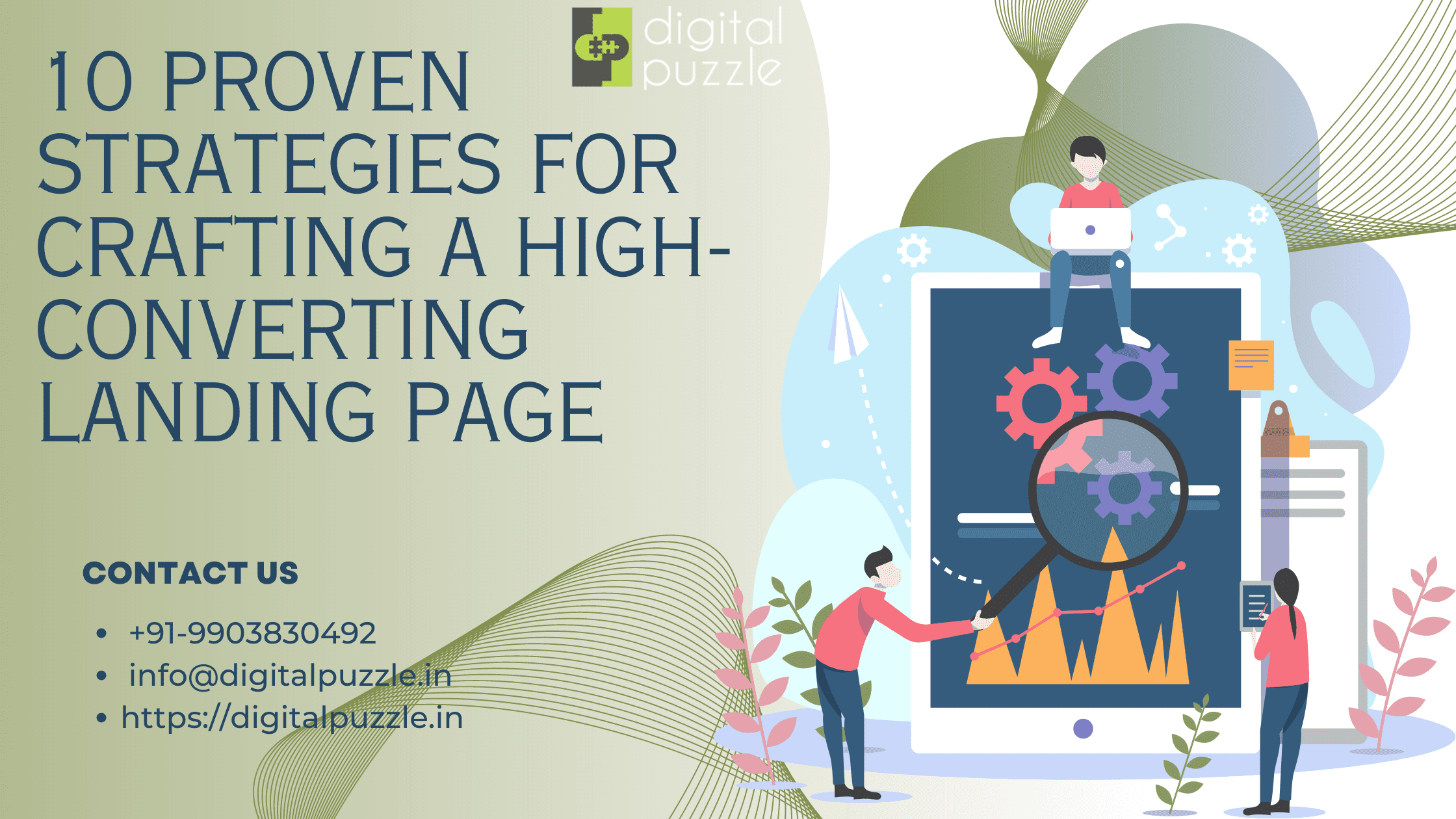
10 Proven Strategies for Crafting a High-Converting Landing Page
A landing page is a critical element of any digital marketing strategy. It’s the first page a visitor sees after clicking on an advertisement or search result, and its primary purpose is to convert that visitor into a lead or customer. A well-designed landing page can make a significant difference in the success of your marketing campaign. However, creating a perfect landing page requires a deep understanding of your target audience, their needs, and their behavior. It also requires careful planning, design, and optimization. With so many elements to consider, it can be challenging to know where to start. In this article, we’ll provide you with ten tips to optimize for the perfect landing page. Whether you’re looking to increase conversions, generate leads, or boost sales, these tips will help you create a landing page that’s optimized for success.
1. Have a clear and concise headline:
The headline of your landing page should be clear, concise, and attention-grabbing. It should communicate the value proposition of your offer in a way that resonates with your target audience. The headline should be the first thing visitors see when they land on your page, so it’s crucial to make it compelling and relevant.
2. Keep it simple:
A simple and clean design is essential for a landing page. The layout should be easy to navigate, and the content should be organized in a way that’s easy to read. Too much information or clutter can be overwhelming and can lead to visitors leaving your page.
3. Use high-quality images:
Images play a crucial role in creating a visual connection with your visitors. Use high-quality images that are relevant to your offer. Ensure that the images are optimized for web use and are not too large, as this can slow down your page’s loading speed.
4. Use strong calls to action:
Your call-to-action (CTA) should be clear and action-oriented. It should clearly communicate the desired action you want visitors to take. Use contrasting colors to make your CTA stand out and ensure that it’s above the fold.
5. Optimize for mobile:
Mobile optimization is critical in today’s mobile-first world. Ensure that your landing page is mobile-responsive and loads quickly on mobile devices. Use a responsive design and optimize images and videos for mobile use.
6. Use social proof:
Social proof, such as customer testimonials and trust badges, can help to build trust with visitors and increase conversions. Use social proof that’s relevant to your offer and ensure that it’s visible on your landing page.
7. Keep forms short and simple:
If you’re using a form to collect information, keep it short and simple. Only ask for essential information and use smart form fields to make it easier for visitors to complete. The more information you request, the less likely visitors are to complete the form.
8. Test and optimize:
A/B testing can help you identify which elements of your landing page are most effective and make data-driven decisions. Continuously test and optimize your landing page to improve its performance. Keep track of key metrics such as conversion rates and bounce rates.
9. Use relevant keywords:
Use relevant keywords in your headline, copy, and meta description to ensure that your landing page appears in search engine results. Use keywords that are relevant to your offer and that your target audience is searching for.
10. Measure and analyze:
Use analytics tools to measure the performance of your landing page and analyze the data to identify areas for improvement. Keep track of key metrics such as conversion rates, bounce rates, and time on the page.
Creating a perfect landing page takes time and effort, but the rewards are well worth it. By following these 10 tips, you can optimize your landing page for increased conversions, generate more leads, and boost sales. Remember to keep it simple, use high-quality images, and social proof, and continuously test and optimize your page. By doing so, you’ll be well on your way to creating the perfect landing page.
Read More
Revolutionising Conversational AI: How ChatGPT is Transforming the Future of Technology
Almost everyone has a different viewpoint on ChatGPT AI and the nature of work in the future. Artificial intelligence and chatbots have been hot subjects for a while, but ChatGPT, unquestionably the pinnacle of sophisticated chatbots, has taken the online world by storm and is revolutionizing the way we work! Imagine raising doubts regarding the viability of search engines like Google! Who dared to guess it?
OpenAI’s language model can talk and produce human-like responses. It is therefore not surprising that individuals are discussing how it would affect the job market. However, what is the opinion of this conversational AI towards software outsourcing and its part in the AI revolution? We chatted with the chatbot instead of talking about ChatGPT to get its opinion on software outsourcing as well as to ask it some urgent questions about itself.
A sort of Generative Pre-trained Transformer (GPT) model, ChatGPT is an artificial intelligence language model developed by OpenAI. It produces text that resembles human writing and was trained on a sizable corpus of text data acquired from the internet. It has altered the way we produce SEO tactics because of its human-like conversational abilities and comprehensive, understandable responses. The productivity of many jobs can be accelerated by this conversational AI’s quick evaluation and real-time text production capabilities.
Despite its exceptional abilities, there are specific concerns. Due to the fact that ChatGPT was trained using text data that was downloaded from the internet, it is susceptible to biases and incorrect information. Although ChatGPT is capable of producing writing that mimics that of a person, it lacks general intelligence and contextual awareness. Concerns abound about the potential misuse of this conversational AI and other cutting-edge AI models, such as its use in propagating fake news or passing for real people, when looking at ChatGPT and beyond.
As a result of its extensive training on a large text dataset, it is capable of producing outputs for a variety of tasks, including answering queries, generating outlines, sparking ideas, and creating stories. Due to the development of AI technology and the rising demand for AI solutions across numerous industries, it is the talk of the town. The ChatGPT AI will change the nature of work as we currently know it. For this precise reason, it has become a hotly debated subject among academics, engineers, and the general public.
What does it think about hiring outside developers for software projects?
It does not have any personal beliefs or views in its role as a language model for AI. The decision to outsource team members should be based on the specific needs and conditions of the business; after all, outsourcing software can have both advantages and disadvantages. Outsourcing software can lead to monetary savings, increased output, decreased labor costs, the capacity to work continuously and across time zones, flexibility in changing the team’s size as needed, and additional entry to the talent market.
It may, however, also lead to a decline in control over certain processes, cultural miscommunication, reduced job security for on-site employees, lack of oversight of the members of the outsourced team and their work, potential communication and cultural hurdles and avoid these pitfalls while forming a coherent, integrated team.
In the end, factors including the outsourcing partner, management, and monitoring of the outsourcing relationship determine the quality of software outsourcing. Organizations must carefully consider the trade-offs and strike the ideal balance that meets their unique requirements.
Does the cost-effectiveness of outsourcing development hold true?
Outsourcing software development could lead to cost reductions. Some companies choose to outsource their development work to countries with lower labor costs, such as Bangladesh, India, or the Philippines, which generates significant savings. However, it depends on a number of factors, such as the project’s complexity, the location and hourly rate of the outsourced team, and the cost of keeping the outsourcing relationship.
Compared to hiring an in-house team in a more developed nation, engaging a software outsourcing company in India or any other country with a lower cost of living and wages can result in significant cost savings. However, these cost savings might be outweighed by the additional expenses related to administering the outsourcing contract, such as travel expenses, project management overhead, communication expenses, and other overhead.
It’s also important to keep in mind that lower labor costs could not always transfer into lower project costs if the outsourced team is less qualified, experienced, or productive than an in-house team. Time zone variations, cultural obstacles, and communication problems can all affect the standard and output of an endeavor. Therefore, whether or not outsourcing development resources results in cost savings relies on the specific circumstances of a corporation; as a result, it’s essential to carefully and methodically analyze all factors before making a decision.
Is outsourcing appropriate for various business models? Is it just applicable to big businesses?
Outsourcing can be beneficial for many various types, regardless of size. Small and medium-sized firms may find outsourcing to be a way to reduce expenses and obtain access to specialized talents and resources, while major enterprises may use it to expand their operations and preserve their competitiveness. However, whether outsourcing is appropriate will depend on the business needs, the industry, and the available funds.
How can the caliber of outsourced services be improved?
Clearly defined aims and goals: Knowing the intended result and what the outsourced service should accomplish might help you stay on track.
Effective, open communication: To guarantee top quality, the client and outsourced provider should speak frequently. Regular status updates, progress reports, and comments can all help with this.
Testing, continuous integration, and continuous delivery are examples of quality control procedures that can be used to identify and address issues before they become serious ones.
Continuous performance reviews: Reviewing the outsourcing provider’s performance on a regular basis enables you to identify areas for improvement should any problems occur.
Retraining and upskilling: Provide outsourcing workers with opportunities for learning and growth so they may broaden their expertise and produce better services.
Do you believe AI will eventually eliminate the need for outsourcing?
According to some analysts, AI could hurt the outsourcing industry by reducing wages and eliminating jobs. Are there worries that ChatGPT will replace jobs? Automation of some processes and jobs will be widespread, therefore there might be less outsourcing in some industries.
In response to the question “Will ChatGPT replace jobs?” AI can be used to increase production and efficiency, creating new business prospects and expanding the outsourcing industry. The demand for human talents and knowledge in some fields may not be entirely satisfied by AI alone. ChatGPT has a complex and wide-ranging impact on the nature of work in the future. It depends on a variety of factors, such as governmental regulations, the rate of technological adoption, and the qualifications and capabilities of the workforce.
Read More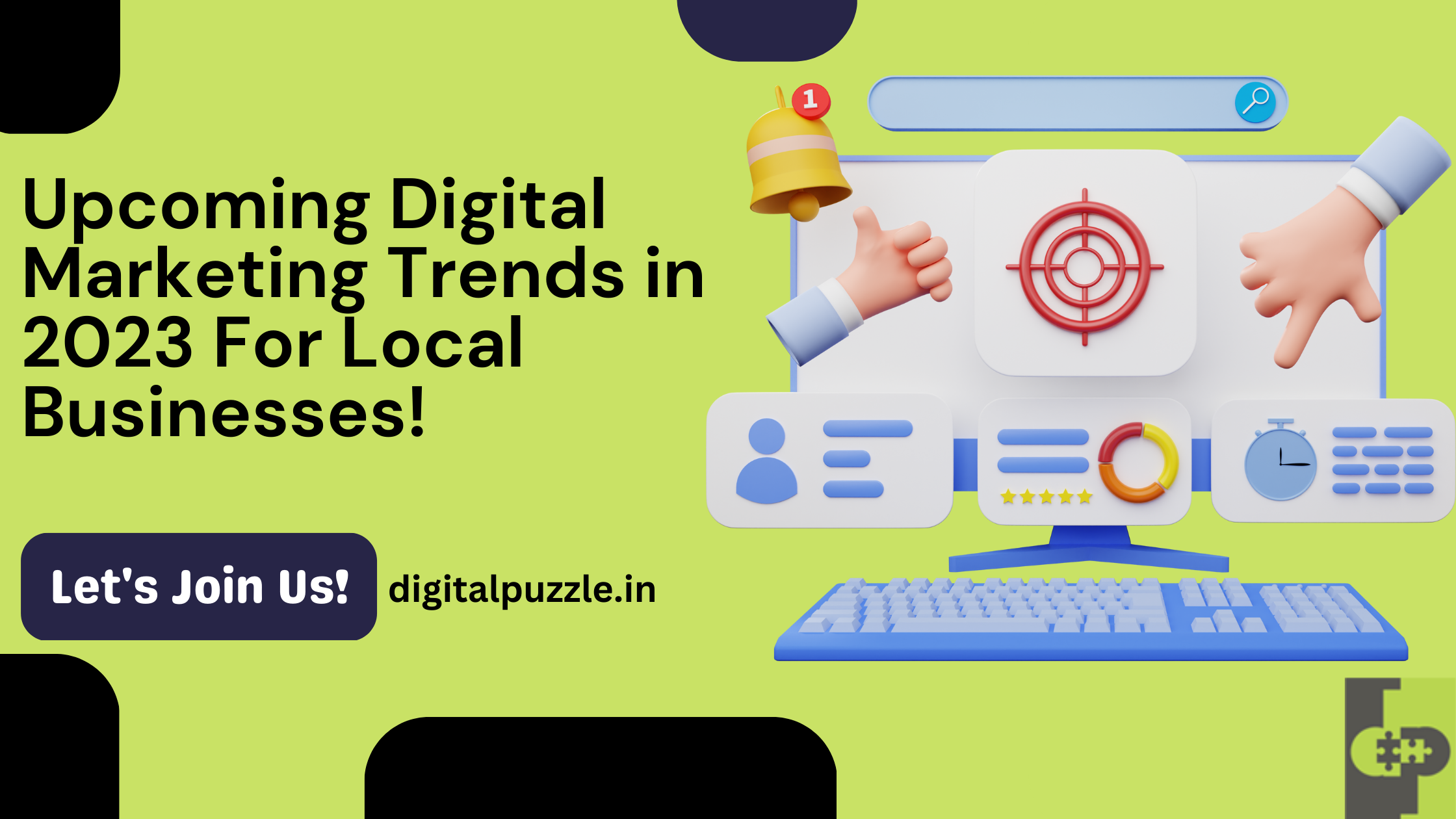
Upcoming Digital Marketing Trends in 2023 For Local Businesses!
In 2023, digital marketing is likely to continue evolving and becoming more sophisticated. Some trends that may become more prominent include: the use of artificial intelligence and machine learning to personalize and optimize marketing campaigns, increased use of video content, the continued growth of social media marketing and influencer marketing, greater emphasis on customer data privacy, and the use of virtual and augmented reality in marketing. Additionally, with the increasing use of mobile devices, mobile optimization and mobile marketing will likely become even more important.
Digital marketing can be a powerful tool for local businesses to increase their visibility and reach new customers. Some strategies that local businesses can use to improve their digital marketing efforts include:
1. Optimizing their website
Local businesses should make sure that their website is optimized for search engines so that it is more likely to appear at the top of search results when people search for relevant keywords. This can be done by incorporating keywords into the website’s content and meta tags, and by ensuring that the website is mobile-friendly.
2. Leveraging social media
Social media platforms like Facebook, Instagram, and Twitter can be powerful tools for local businesses to connect with customers and promote their products or services. Businesses can use these platforms to share updates, post photos, and interact with customers.
3. Utilizing local SEO
Local SEO is a specific type of SEO that aims to increase a business’s visibility in local search results. This can be done by including location-specific keywords in website content and meta tags, and by claiming business listings on platforms like Google My Business and Yelp.
4. Creating valuable content
Local businesses can create valuable content such as blog posts, infographics, and videos that can help attract and engage customers. By providing valuable information and entertainment, businesses can establish themselves as experts in their field and create a loyal customer base.
5. Using email marketing
Email marketing can be an effective way to reach existing customers and nurture potential ones. Businesses can use email marketing to send promotions, updates, and special offers to their email list.
6. Running paid advertising campaigns
Paid advertising campaigns such as Google AdWords or Facebook ads can help local businesses reach a larger audience. By targeting specific demographics and locations, businesses can ensure that their ads are reaching the right people.
-
By implementing a combination of these digital marketing strategies, local businesses can improve their online visibility and reach new customers, helping them to grow their business in the long run. Now let’s have a look at some upcoming digital marketing trends that will be beneficial for your local business in 2023:
1. User-Generated Content
User-generated content (UGC) is a type of content that is created by customers or other users of a business, rather than by the business itself. UGC can take many forms, including reviews, photos, videos, and social media posts. It can be a valuable tool for local businesses because it helps to build trust and credibility with potential customers. When people see positive reviews and photos from other customers, they are more likely to trust the business and be more likely to visit. Additionally, it can help a business to improve its search engine rankings, as search engines tend to favor websites with a lot of high-quality content. By using UGC effectively, local businesses can build trust and credibility with potential customers, improve their search engine rankings, and increase their online visibility.
2. Artificial Intelligence
AI can automate routine tasks such as data entry, customer service, and inventory management. This can save time and resources for local businesses, allowing them to focus on more important tasks. It can analyze large amounts of customer data to identify patterns and make predictions about future customer behavior. This can help local businesses to create more effective marketing campaigns and target their advertising to the right audience. AI can also be used to personalize the customer experience by analyzing customer data and creating personalized product recommendations or targeted email campaigns. This can help to increase customer engagement and loyalty. And lastly, AI-powered chatbots and virtual assistants can be used to communicate with customers in real-time on websites, social media platforms, and messaging apps. This can help local businesses to provide better customer service and support.
3. Wifi Marketing
WiFi marketing is a type of digital marketing that uses a business’s WiFi network to collect customer data and deliver targeted promotions and advertisements. By using WiFi marketing, local businesses can gain valuable insights into customer behavior and preferences, and use this information to improve their marketing efforts and increase customer engagement. When customers connect to a business’s WiFi network, they can be prompted to provide their contact information, such as their name and email address. This information can be used to create a customer database, which can be used to send targeted promotions and advertisements.
4. Agile Marketing
Agile marketing is a method of marketing that emphasizes flexibility, speed, and collaboration. It allows local businesses to respond quickly to changes in the market, customer behavior, and technology. By using agile marketing, local businesses can improve their marketing efforts and increase customer engagement. It allows local businesses to develop, test, and launch new marketing campaigns quickly. This means that businesses can respond quickly to changes in the market, such as new competitors or emerging trends.
5. Personalization
Personalization is the process of tailoring products, services, or communication to the individual needs and preferences of a customer. By providing personalized experiences, local businesses can increase customer engagement and loyalty. Customers are more likely to return to a business that offers personalized products, services, or communication. Personalized recommendations and targeted promotions can help local businesses to increase sales. Customers are more likely to purchase products or services that are tailored to their individual needs and preferences. It can also help local businesses to provide better customer service. By understanding individual customer needs and preferences, businesses can provide more tailored and effective solutions to customer problems.
6. Social Media Marketing
Social media marketing (SMM) is the process of promoting a business, its products, or its services through social media platforms like Facebook, Instagram, Twitter, and LinkedIn. Social media platforms have a large user base, and by creating a presence on these platforms, local businesses can increase their visibility and reach a larger audience. Social media advertising can be a cost-effective way for local businesses to reach new customers and promote their products or services. Social media platforms allow businesses to interact with their customers in real-time, which can help to increase customer engagement and build a loyal customer base. Social media platforms provide businesses with the ability to target specific demographics, such as age, location, and interests. This can help local businesses to reach the right audience and increase the effectiveness of their marketing campaigns.
In conclusion, digital marketing is an essential tool for local businesses to increase their visibility and reach new customers. There are many different digital marketing strategies that local businesses can use, such as: optimizing their website, leveraging social media, utilizing local SEO, creating valuable content, using email marketing, running paid advertising campaigns, using user-generated content, implementing AI tools and personalization, WiFi and agile marketing. By implementing a combination of these digital marketing strategies, local businesses can improve their online visibility and reach new customers, ultimately helping them to grow their business in the long run.
Read More
How to Build a Digital Marketing Strategy for E-commerce in 2023 | Digital Puzzle | Best Digital Marketing Agency in Kolkata
A business can be grown properly with a well thought strategy. Digital Marketing has become an inevitable part of companies wanting to go online with their brands. We have seen many roller coaster rides since the pandemic hit us. Since more people are crowding online for their essentials and other types of necessities, companies are finding it tougher than ever to attract their audience. This post is for those who are not able to set up their digital marketing strategy.
Below are some of the most important strategies with which you can grow your business.
-
eCommerce chatbot is useful:
Chatbots are among the most useful ways of involving potential users and making existing ones happy. They offer a faster option for fetching the information you want, whether it’s about an item of your brand or any other queries.
A chatbot can be seen on your website using a live chat widget or you can apply such a chatbot on social media platforms from where you can get amazing responses.
-
Setting up price mechanization:
If you are selling your items online through social media platforms and online marketplaces, you must get the pricing apt. It is very important but practically impossible to fix pricing on the channels to stay in the race, specifically when the demand remains high.
Price mechanization can serve your purpose. You can make a competitive pricing plan by keeping an eye on your competitors and making norms for modifying your pricing. After this, mark the prices of the items categorically throughout the channels and marketplaces. Choose a tool and use it to set up pricing cues to boost your ROI rapidly.
-
Sending push notifications:
Push notifications are those alerts that you get on your device or browser. The click-through rates are more or less 12% on these but can soar to 30% if you run a highly-targeted campaign. Using push notifications to send promotions, transactional information, and updates on items to your existing clients can become extremely profitable for your business.
-
Marketing automation for better conversion rates:
The main reason for using marketing automation is to upscale every touchpoint throughout the buyer’s journey and automate your marketing channels. This increases sales and conversion rates. E-commerce sites need a lot of painstaking work and techniques to be prosperous. It’s better to automate them as soon as possible.
-
User-generated content:
User-generated content or UGC is an amazing way to make your campaign run viral. You can ask your clients to share pics and videos of the product usage, and success stories and post them all on your pages. This has helped many companies through creative content to gain big. UGC and influencer marketing can give you sales more than you expected.
-
Curtail cart abandonment:
One of the biggest issues of online marts is shopping cart abandonment. It’s becoming a headache for companies because the average cart abandonment throughout the industries is about two-thirds. In the case of mobile users, it’s even higher.
So, what’s the solution? You can launch pop-ups, run retargeting campaigns, and also try thorough usability tests to optimize the segments of your website that are not able to fetch enough engagement.
-
Make your checkout process simpler:
A simple checkout process always works for businesses. It is one of the important areas of an eCommerce site. Omit any unwanted fields and ensure that you add the guest checkout alternatives and any third-party payment options. This will enhance user experience which is important for your brand.
-
Customer reviews are crucial:
The more customer reviews your products get, the more buzz will be around them. Online reviews and user-generated content are among the tested ways to enhance your eCommerce conversion rate. UGC impacts heavily on purchasing decisions of buyers and also boosts conversions by approximately one-third.
If you want to display customer product pics and videos automatically on your product and category pages, you can use top marketing tools.
-
Running A/B tests continuously is beneficial:
Data is the main source of success for a prosperous eCommerce business. In addition to data, using heat maps and surveys to gather information on what performs also matters. You can also fetch live recordings of parties by going through your website and attempting to check out. After this, optimize or examine problematic things. Also, evaluate the easiness of your users to complete an order, include something to the cart, and find out an item. This is important in terms of UX.
-
Social media ads are a must:
An eCommerce company must launch social media ads on Facebook and Instagram. This will increase the visibility of your pages and brand. You can also test YouTube ads and patronize the videos of influencers. This can also drive customers to your channels.
Following these digital marketing strategies can help you to flourish your business. You have to implement them carefully so that they can work perfectly for your business purposes.
Read More
Why Data is Important in Digital Marketing |Digital Puzzle| Best Digital Marketing Agency in Kolkata
Data plays a pivotal role in digital marketing because everything is linked to each other. Nowadays, the consumer journey needs data to know the source of your clients, the lead generation source, the type of information that is resonating with them, and the general buying cycle for your organization.
How to collect data with the help of digital marketing:
As said earlier, data is among the priceless resources that help companies to gather information about customers and know them. This in turn guides you to improve the services offered by your company. But how do you gather data?
-
Setting the objective:
You should know the kind of data needed and for what cause it will be used before gathering data. It all depends on your business type. If you have a small business in healthcare products, you will want to know about the items that are top sellers in a particular age group.
-
Setting a timeframe is necessary:
A clear timeframe is always useful while setting plans for data collection. The timeframe duration depends solely on the kinds of data you want to gather. A shorter timeframe will be better for you if you require more data for a particular campaign.
-
Choosing a data collection method:
After understanding the fundamentals, you should opt for a collection method. For this, think about the selections made so far. From there, you can get lots of options. Surveys allow you to ask your clients for information directly. Online tracking and transactional data analysis are among the most important substitutes.
-
Gathering the data:
After accomplishing the above steps, you can implement the plan and watch the performance. After crafting the plan, ensure that you stick to it. You can store and examine your data in the DMP. Moreover, you can also make a timetable so that you can check at any point the proceedings and whether they are going according to your plan or not.
-
Analyzing data and learning from it:
An aspect of gathering data is utilizing them. In this case, you should analyze and categorize them. This is a significant part of the method which will permit you to convert raw data into precious insights. You will also be able to improve your marketing plans used and redefine your business.
How to use data in digital marketing:
Analytics and big data play a crucial role in determining influential marketing strategies. Below are some of the ways by which you can use data in digital marketing.
-
Having accurate data is necessary:
Flawless data is a must for making impactful marketing decisions. Begin with KPIs and work backward. KPI embodies measurable values which indicate the performance of campaigns. A goal is necessary for marketing decisions. Irrespective of the goals, your KPIs should assist the goal.
-
Understanding audience and channels:
The most significant thing about having data is understanding the audience whom you should be targeting in marketing campaigns. Track the type of visitors to your website to target similar people to your customer base. Moreover, you can utilize data to understand the likes and dislikes of your audience.
-
Targeting the proper keywords:
With the help of data, you can understand what your audience is searching for while looking for your products. They can also assist you in targeting the keywords and driving traffic to your account website and channels. Using Google AdWords you can know which keywords can serve your purpose.
-
Optimizing campaigns and website:
You can use your past data to know the future results of your campaigns. This will help you to identify the performance of your ad campaigns. Optimization of various parameters within your audience can also be done. If you offer multiple services, you can target personas.
How can Digital Puzzle help to grow a business with a specialized marketing strategy:
The digital world is always moving, and so should your brand. Digital Puzzle, being one of the best digital marketing agencies always offers its best to help companies grow at a rapid pace. Their tailor-made methods are tried and tested and can be relied on.
-
How do they work:
A leading digital marketing company works by knowing the purposes and objectives of its clients. These help them to come out with a proper strategy by brainstorming. The experts know how to boost the parameters by using the right tools and techniques.
-
How they make a marketing plan:
Before making a marketing plan, a digital marketing agency must understand the client, its competitors, and consumers through thorough research. This will help them to initiate the campaigning process by choosing the best communication platforms.
-
How they execute a plan:
Implementing a plan needs sheer skill and expertise. This is why you should always work with the best digital marketing company. Their professionals will help your business by implementing strategies finely crafted by using every bit of digital space.
-
Services offered:
The best digital marketing agencies offer top-notch services like:
1. Search Engine Optimization: SEO is the most important part of digital marketing. An eminent company will always support your organization by delivering high-quality content that will make your business stand out from the crowd. Using the trends, tools, and techniques, their SEO experts will give your brand an upper hand.
2. PPC: By knowing your brand and its audience, the leading marketers chalk out a strategy to fulfill your business needs. Based on it, they optimize your campaigns through paid ads. To measure performance, they are always measured by analytics tools.
3. Email marketing: This is a tested process. Effective marketing emails turn prospects into customers, which is tried by most known digital marketing companies. Sending emails to a targeted list of potential or existing customers can change the scenario for your brand.
4. Content marketing: An inevitable part of digital marketing, content marketing helps a brand reach its audience faster than ever. A top digital marketing company always emphasizes creating high-quality content to drive more traffic from the website and social media platforms.
5. Social Media Marketing: If you want your business to grow, you need an excellent social media marketing strategy. The best digital marketer can help your brand by providing a tailor-made approach. This will enhance your brand visibility through social media platforms like Facebook, Twitter, Instagram, etc. This in turn will increase involvement with your audience.
From the points discussed above, you can understand the sheer importance of data in digital marketing. Going through this piece will help you know the undeniable importance of data.
Read More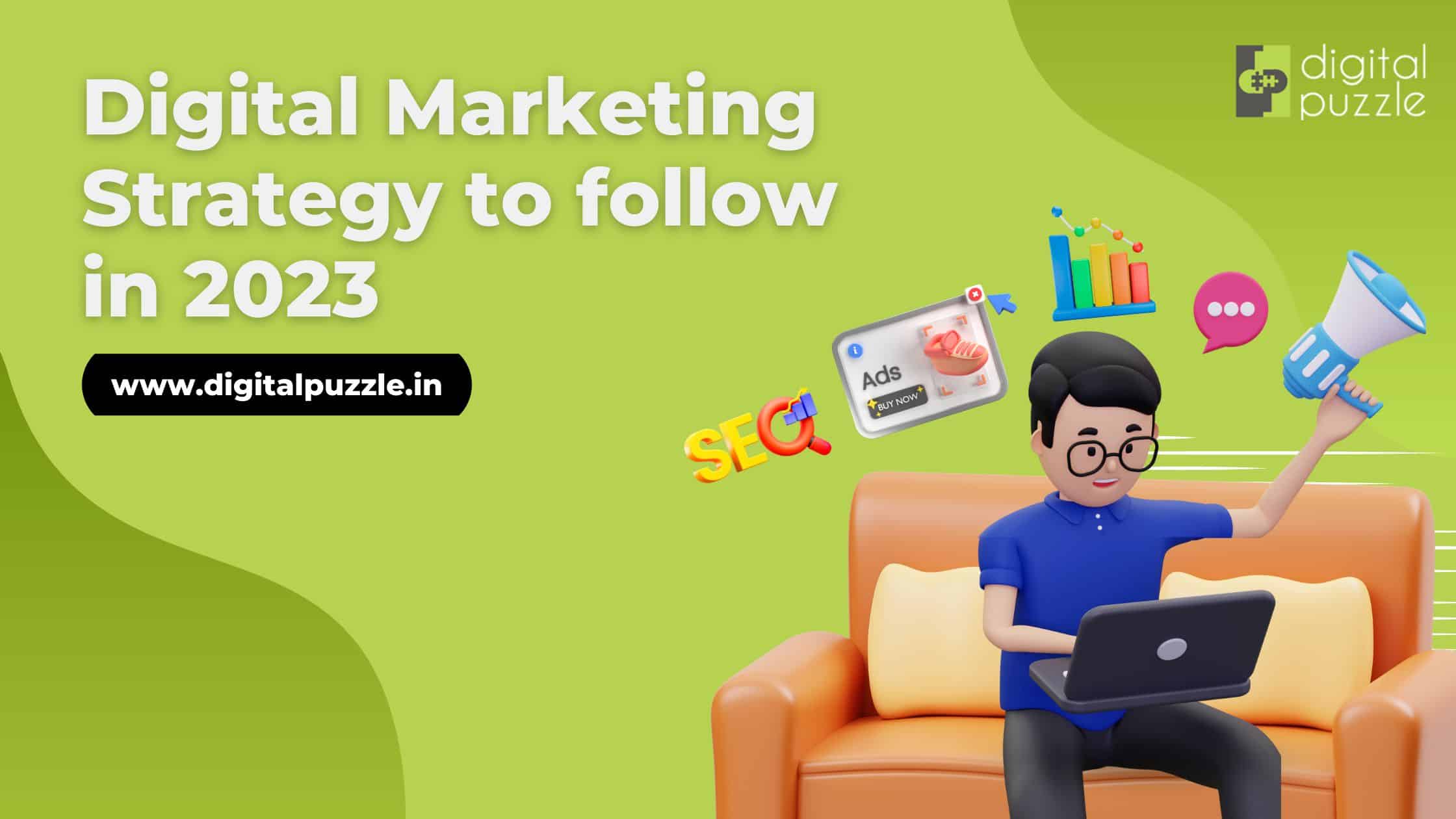
Digital Marketing Strategy to follow in 2023 | Best Digital Marketing Agency in India
What is a digital marketing strategy:
A digital marketing strategy is a program for founding an impressive presence over the internet through online channels like organic search, social media, paid ads, and other web mediums like your website. Digital marketing strategies aim to improve brand awareness and entice new customers to your brand.
Reasons why businesses need a digital marketing strategy :
Digital marketing is crucial. It links the brands with their customers online and works for all industries. It connects companies with ideal consumers when they are on search engines via SEO and PPC, on social media with social media marketing, and via email with the help of email marketing.
What makes a perfect digital marketing strategy:
-
SEO:
An SEO approach or strategy is a way of planning and executing steps developed to boost organic search engine rankings. SEO strategy is a method that you observe while wanting to extract more organic traffic. The steps to develop an effective SEO strategy in 2023 are:
- Creating a list of keywords
- Analyzing Google’s First Page
- Creating Something different or superior
- Include a hook
- On-page SEO optimization
- Search Intent Optimization
- Focusing on content design
- Building links on your page
- Content Updation and Improvisation.
Following these steps minutely, you can create a great SEO strategy.
-
Social Media Marketing:
Social media marketing is the process of using various social media platforms like Facebook, Instagram, and Twitter for your brand promotion and selling your services. Let’s check out the steps to make a powerful social media marketing strategy.
- Setting business-relevant goals
- Researching your target audience and choosing your networks
- Establishing the most critical metrics and KPIs
- Creating and curating attractive social content
- Timely social presence is a must
- Evaluating and developing a social media strategy
- Bringing other sectors into a place.
These steps will guide you to develop a social media strategy that will increase the social presence of your business.
-
Google Ads:
Running campaigns are an integral part of the digital marketing strategy of a business. It would help if you had a specific Google Ads PPC strategy that is the latest befitting your list. Below is a list of Google Ads strategies that you should endeavor to stay ahead of the competition.
- Making use of promotion extension
- Setting PPC Voice Search in Mind
- Giving more attention to mobile-oriented Ads
- Staying ahead of competitors using Target’s outranking share
- Setting location bid adjustments to target the proper visitors
- Placing a targeted cost per conversion
- Using negative keywords wisely
- Including tracking call extension
- Adding dynamic keywords for ads
- Re-marketing lists for search ads
- Maximize your budget like an expert
- Give significance to the audience in your campaigns
- Boost up your call to action.
PPC campaigns are one of the most important aspects of your business, but the strategy is very crucial.
-
Lead Generation:
Studies have shown that most marketers create generating business leads as their top priority. If you are not accustomed to it, then read the piece and keep in mind the list of lead-generation strategies is provided below.
- Simplify your lead generation website
- Use your sales intelligence
- Analyze your opponents
- Redefine your sales funnel
- Integrate organic and paid lead generation
- Re-target your lead generation campaigns
- Branch out to different advertising forums
- Use AI and automation equipment
- Provide live demos
- Create short-form video
- Initiate networking
- Keep an eye on social media
- Include gamification elements.
These tried and tested lead-generation methods are worthwhile for small businesses.
-
Content Marketing:
Creating high-quality content and using them on your websites and social media channels are one of the most important things in digital marketing. Simple steps for developing and executing a content marketing strategy have been provided below.
- Set your goals
- Establish your KPIs
- Know your target audience
- Assess your present position
- Identify the best content channels
- Determine types of content
- Figure out and allocate resources
- Make a content calendar
- Create quality content
- Disseminate and market
- Measure results.
These simple steps are sure to help you in making an effective content marketing strategy.
-
Email marketing:
There has been an astonishing surge in the number of email users. Email stays as one of the preferred ways of business communication. Follow the below steps to make email marketing plans according to your needs.
- Get personal within limitations
- Precise subject lines
- Choose the apt time for sending emails
- Give away freebies
- Mobile-friendly emails are effective
- Classify subscribers
- Re-engage with inactive users
Testing your email campaigns can work for your business. This will save you from errors.
How DIGITAL PUZZLE can help:
Digital Puzzle, one of the leading digital marketing agencies in India can help you with their tried and tested strategies. Our experts will guide you through the process and assist your team to gain the desired results in a quick time. The digital marketing strategies discussed here will surely give your business the needed growth.
Read More




